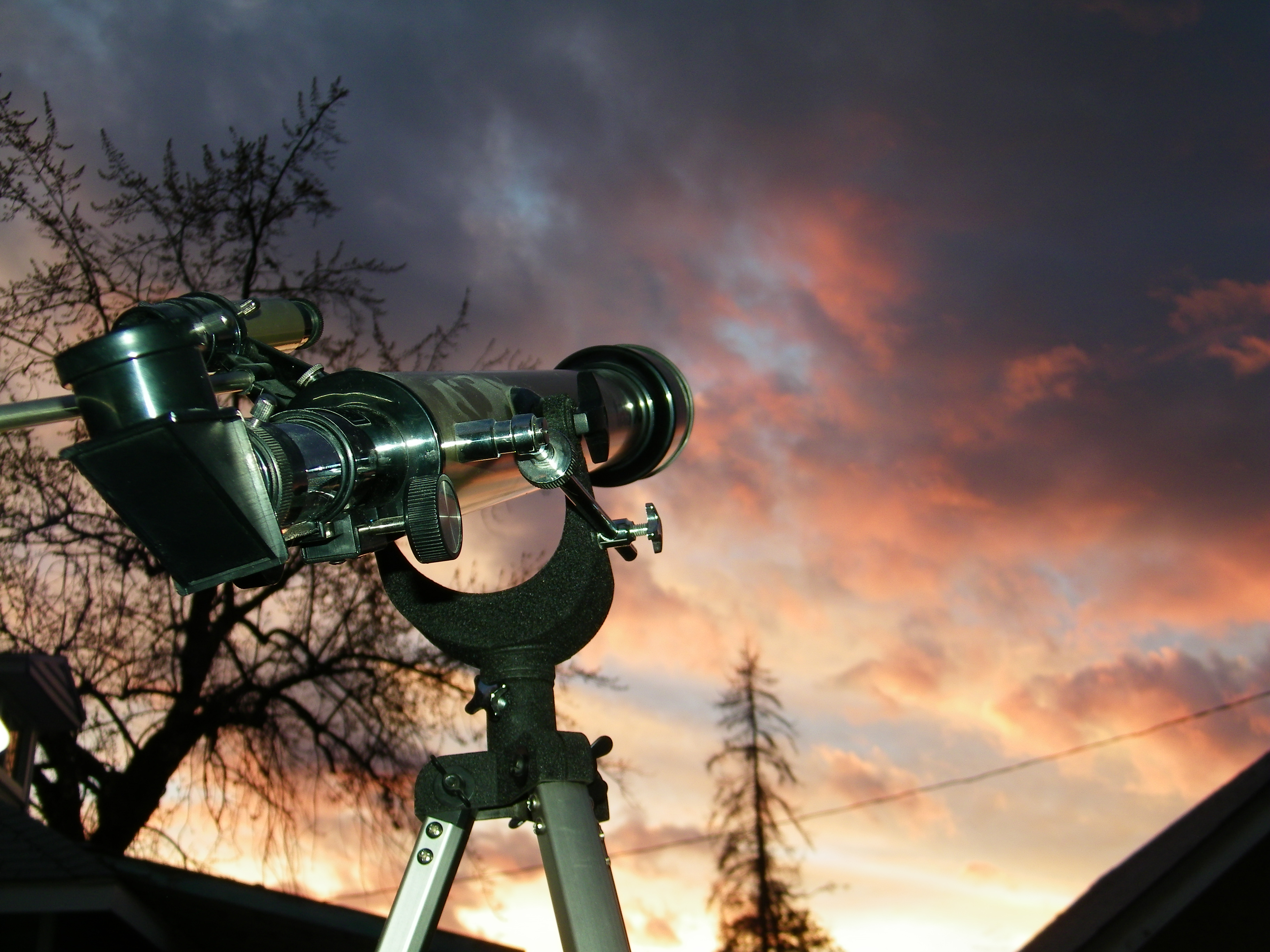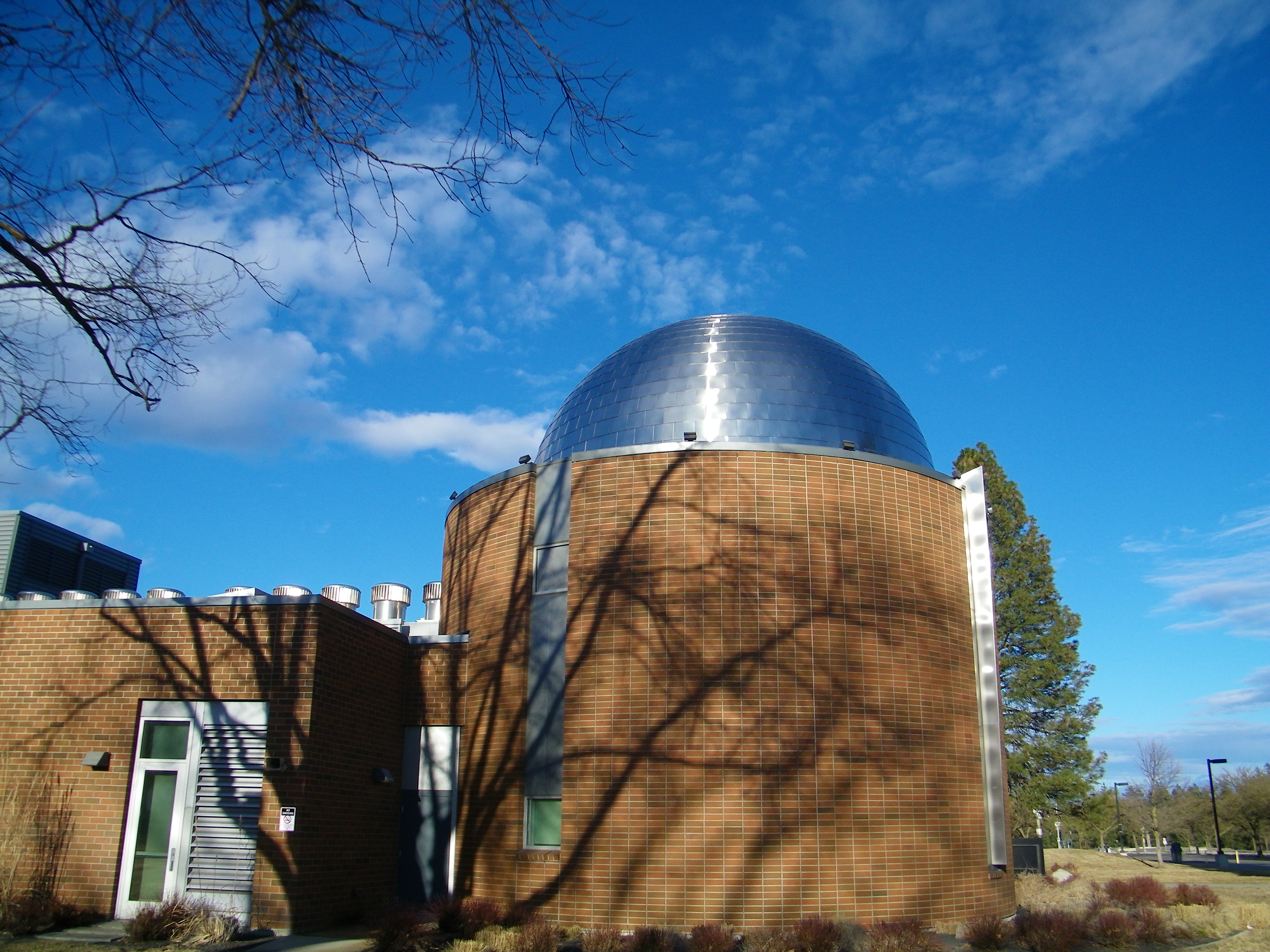
Have you ever gazed up into the sky and were delighted when you realized how it was such a clear and beautiful night to stargaze and you wished you had a telescope and a guide that could help you discover the wonders of the universe?
Good news. There is a solution for those who enjoy stargazing and want to try dabbling in amateur astronomy. Spokane Public Libraries offers two telescopes, The Vixen and The Orion which are available for public use. You have to request a hold on a telescope, which will put you on a waitlist until it becomes available to you for pickup and use.
Spokane Public Libraries also offers numerous books on astronomy, including night sky guides that help novice astronomers navigate and identify celestial objects. You can search for available books on their website or go to a library near you. Spokane Libraries have four locations that are currently open and available to the public: Shadle Park Library, Liberty Park Library, Hillyard Library, and the STA Plaza Library.
In addition to books, there are also several phone apps available that can teach you about astronomy and even help point out stars and other celestial objects to you. For iOS systems, the app titled Night Sky X is a particularly useful one. It uses your location data and sophisticated augmented reality (AR) technology to show you what objects are visible to you in your area and where to look for them.
When you open the app you will see a screen full of all sorts of celestial objects like stars and constellations, planets, moons, nebulae, comets, orbiting satellites, where the International Space Station is and it’s trajectory, and even other galaxies, like our neighbor Andromeda.
It has a compass on screen, and the app will rotate the sky towards the direction you move your phone. So if you are facing West and then towards South, the app will move with you and show objects that lie to the South. What you see is also dependent on what hemisphere you live in and the time of year. However, the app will show you what is being seen in the other hemisphere, all you have to do is tilt or move your screen down. You are able to zoom in and out of the sky too.
You can also tap on objects to highlight them and learn more about them. There is also a new feature called Sky Tags, where you can long press an object and tag it, allowing you to keep track of it.
Night Sky X shows you the weather forecast in your area, so you can determine if it’s a good night to stargaze or not. They also keep information on when the sun and moon will rise and set in your timezone, as well as what astronomical events will be occurring in your area and when – like meteor showers for example.
For the Android users, SkyView Lite is a good alternative option to Night Sky X. The official NASA app is also another informative tool for both iOS and Android.
If you are looking to have clearer skies for stargazing than in the city, you could go to Mt. Spokane, which is a local favorite spot for astronomers to go and observe the night sky. Outside the city limits is also a good bet for getting away from the light pollution in the city.
Another option to learning more about astronomy is to see a planetarium show for a low cost at Spokane Falls Community College. They are one hour in length and the first half consists of a night sky presentation with a speaker presenting, the second half is a full-dome movie. The planetarium is currently planning a spring re-opening, so check in after April 1st for dates and times.

So, to those who stare up at the night sky in wonder, Spokane Libraries has you covered with both telescopes and book sky guides. Your phone can also be a convenient tool to help you gaze at the cosmos with certainty and delight.